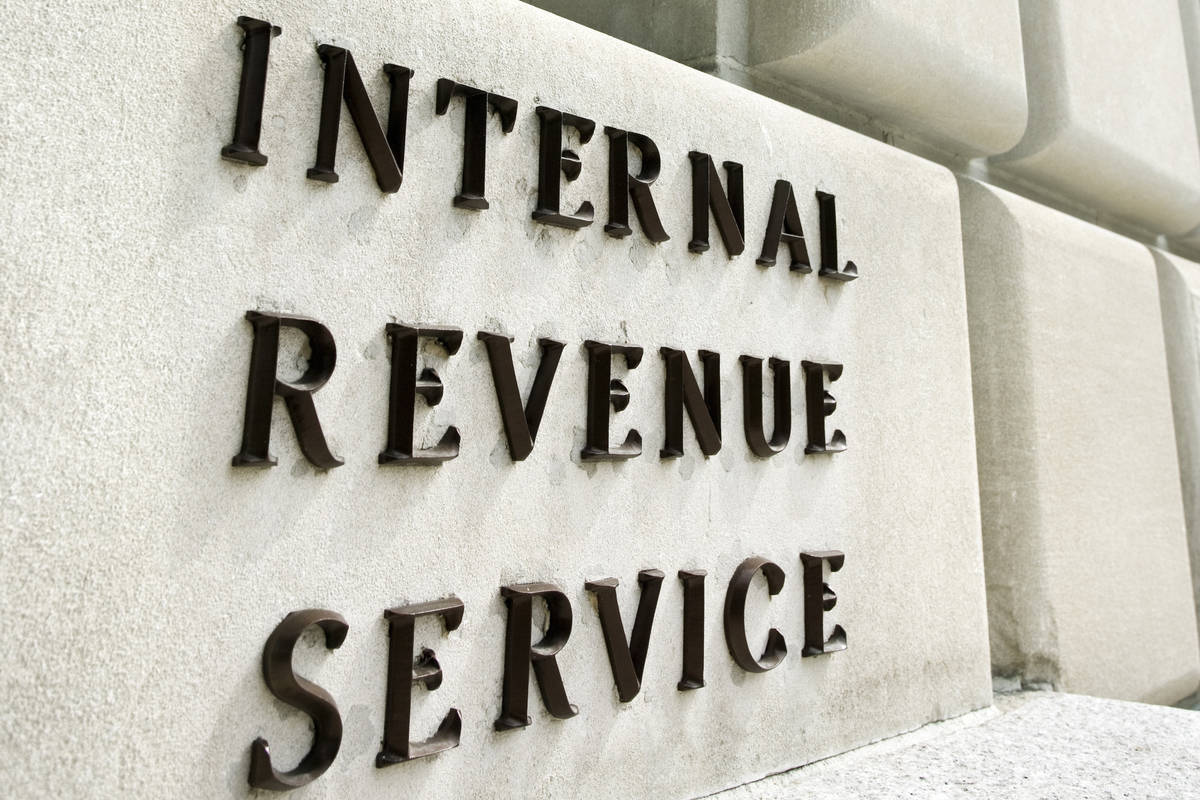CARES Act includes new tax benefits for charitable giving
The Internal Revenue Service reminds taxpayers, both individual and corporate, that the CARES Act included four temporary tax changes that are designed to help people and businesses who give to charity this year.
First, there is a new deduction for people who don’t itemize. Individuals who elect to take the standard deduction generally cannot claim a deduction for their charitable contributions. The CARES Act, however, permits these individuals to claim a limited deduction on their 2020 federal income tax returns for cash contributions made to certain qualifying charitable organizations and still claim the standard deduction.
Under this change, these individuals can claim an “above-the-line” deduction of up to $300 for cash contributions made to qualifying charities during 2020. The maximum above-the-line deduction is $150 for married individuals filing separate returns.
Though cash contributions to most charitable organizations qualify, those made either to supporting organizations or to establish or maintain a donor-advised fund do not. Cash contributions carried forward from prior years do not qualify, nor do most cash contributions to charitable remainder trusts.
In general, a donor-advised fund is a fund or account in which a donor can, because of being a donor, advise the fund on how to distribute or invest amounts held in the fund. A supporting organization is a charity that carries out its exempt purposes by supporting other exempt organizations, usually other public charities.
Cash contributions include those made by check, credit card or debit card as well as amounts incurred by an individual for unreimbursed out-of-pocket expenses in connection with the individual’s volunteer services to a qualifying charitable organization. Cash contributions don’t include the value of volunteer services, securities, household items or other property.
Subject to certain limits, individuals who itemize may claim a deduction for charitable contributions they make to qualifying charitable organizations. These limits generally range from 20% to 60% of an individual’s adjusted gross income and vary by the type of contribution and type of charitable organization.
For example, a cash contribution made by an individual to a qualifying public charity generally is limited to 60% of the individual’s AGI. Excess contributions may be carried forward for up to five tax years.
The CARES Act permits electing individuals to apply an increased limit, up to 100% of their AGI, for qualified contributions. The election is made on a contribution-by-contribution basis. Qualified contributions are limited to those made in cash during calendar year 2020 to qualifying charitable organizations.
As with the new limited deduction for nonitemizers, cash contributions to most charitable organizations qualify, but, once again, those made either to supporting organizations or to establish or maintain a donor-advised fund, do not. Nor do most cash contributions to charitable remainder trusts.
Unless an individual makes the election for any given qualified contribution, the usual percentage limit applies. Keep in mind an individual’s other allowed charitable contribution deductions reduce the maximum amount allowed under this election. Individuals who would like to take advantage of the Increased Individual Limit must make their elections with their Form 1040 or Form 1040-SR.
The CARES Act permits C Corporations to apply an increased limit of 25% of taxable income for charitable contributions of cash they make to eligible charities during the 2020 calendar year. The maximum allowable deduction is usually limited to 10% of a corporation’s taxable income.
Here again, the Increased Corporate Limit does not automatically apply. C Corporations must elect application of the Increased Corporate Limit on a contribution-by-contribution basis.
Businesses donating food inventory that is eligible for the enhanced deduction (for contributions for the care of the ill, needy and infants) are eligible for increased deduction limits.
For contributions made in 2020, the limit for these contribution deductions is increased from 15% to 25%. For C Corporations, the 25% limit is based on their taxable income.
For other businesses, including sole proprietorships, partnerships and S corporations, the limit is based on their aggregate net income for the year from all trades or businesses from which the contributions were made. A special method for computing the enhanced deduction continues to apply, as do food quality standards and other requirements.
The IRS reminds individuals and businesses that special record-keeping rules apply to any taxpayer claiming a charitable contribution deduction. Usually, this includes obtaining a receipt or acknowledgment letter from the charity before filing a return and retaining a canceled check or credit card receipt.
For donations of property, additional record-keeping rules may apply, including filing a form 8283 and obtaining a qualified appraisal.
For additional details on how to apply the percentage limits described above and a description of the record-keeping rules for substantiating gifts to charity, see Publication 526, Charitable Contributions, available on IRS.gov

















